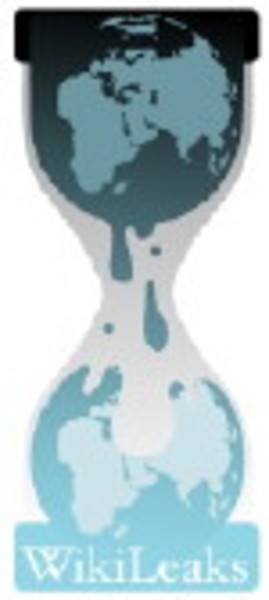Wanted by the law across multiple countries, threatened with military action by US hawks, shut out by internet vendors from Amazon to PayPal, Wikileaks leader Julian Assange may still be named TIME Magazine’s Person of the Year for 2010. He’s currently leading in the magazine’s online poll, ahead of the Prime Minister of Turkey, Recep Erdogan, in influence score if not in votes.

Erdogan is hardly uncontroversial, either, having challenged Israel vehemently and collaborating with Turkish nationalists TIME says still deny the history of the Armenian genocide. The Person of the Year award this year is basically a media statement for or against the legitimacy of Wikileaks and what it represents. The third candidate on the list might represent the perfect abdication of responsibility for answering this or any serious questions: it’s Lady Gaga.
What Wikileaks Represents
Depending on your perspective, Assange and Wikileaks probably represent one of two things. As GigaOm’s Mathew Ingram wrote this weekend, “Some argue that there is nothing journalistic about the organization whatsoever, and that it is simply a lawless group of misfits spreading information around that it doesn’t have the right to distribute, without caring for the effects of its actions.”
Journalism thought leader Jay Rosen, however, calls Wikileaks “the world’s first stateless news organization.”
WikiLeaks Coverage From ReadWriteWeb:
- Wikileaks Lets Loose “Global Intelligence Files” from Stratfor Emails
- WikiLeaks May Move Servers to International Waters to Avoid Shutdown
- One Year After Cablegate Began, WikiLeaks’ Operations Still Handicapped
- Twitter, WikiLeaks and the Troubling New Implications For Online Privacy
- Having Ended the Iraq War, Wikileaks Runs Out of Money
- Did Google Hand a Wikileaks Volunteer’s Gmail Data to the U.S. Government? [Updated]
- Weekly Wrap-up: Wikileaks, Google Plus, Facebook and More…
- Wikileaks Takes Down the Head of Al Jazeera
The organization, which isn’t at all a wiki like Wikipedia is anymore, does represent something very interesting about contemporary technology and media. This much is hard to argue with, I think, no matter your perspective: Written about by websites everywhere, spread across millions of Twitter and Facebook conversations, mirrored by hundreds of independent servers, Wikileaks represents mass accessibility of information that simply cannot be shut down, despite the best efforts of authorities.
Unlike Amazon, Paypal and others, Twitter and Facebook have allowed the organization to continue using their services. Were that to change, we’d be talking about a different ball game. Neither company has responded to inquiries about their official positions on their Wikileaks accounts, but neither has shut down the accounts, either.
Twitter is passing around a press statement this morning stating that it is not censoring Wikileaks from its “trending topics” section, but asked point blank about whether it will permit the Wikileaks account to remain online or whether it will be shut down, Twitter’s Matt Graves told ReadWriteWeb, “We’ve got no additional comment beyond the statement.”
Genie, Meet the World Outside a Bottle
It’s also notable that most of the “state secrets” being distributed by Wikileaks are allegedly from troves of information that thousands, if not millions, of people had security clearance to see already. There are 3 million people in the U.S. with some level of security clearance to access classified government documents. It’s hard to believe that malevolent actors who wanted to see what Wikileaks exposes didn’t have the opportunity to, though now the documents have been analyzed by hundreds of outside analysts, indexed by search engines and pointed to by countless websites. That scale of eyeballs, minds, machines and social connections is the biggest game changer, not the mere availability of the information.
The U.S. government made the Internet fault tolerant through redundant connections. Now unflattering information about its own activities has flooded that network it helped create. The Internet is a genie that cannot be put back in the bottle.
No one has forced discussion of these questions before as much as Julian Assange and Wikileaks. I expect that TIME will award Assange the Person of the Year Award, not for any of the revelations that Wikileaks exposed, but for the way it forced the issue of a radically transparent global communications network. The magazine may reference its choice of Joseph Stalin in 1939 to emphasize that the award is not a sign of approval or support, but such an award would doubtlessly confer a new sense of legitimacy to Wikileaks and the issues the organization represents.
You can’t change your Facebook profile from dating to single these days without all your friends finding out – and neither can international diplomats put digital pen to paper without some concern that their words will be made available for universal access and analysis. How will that change the world of international relations? I suspect we’re about to find out.
Perhaps Lady Gaga will be the Person of the Year instead, though.

















